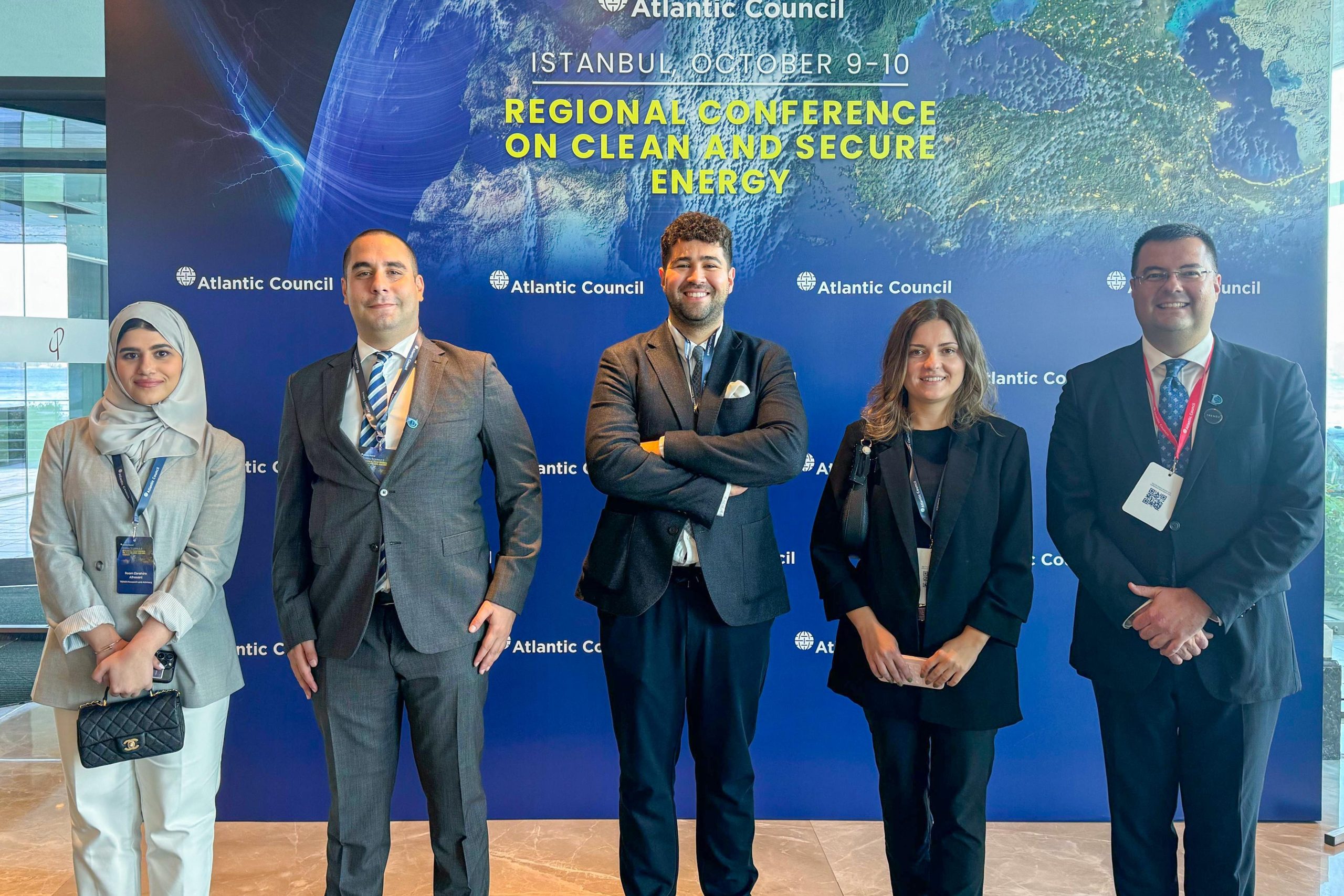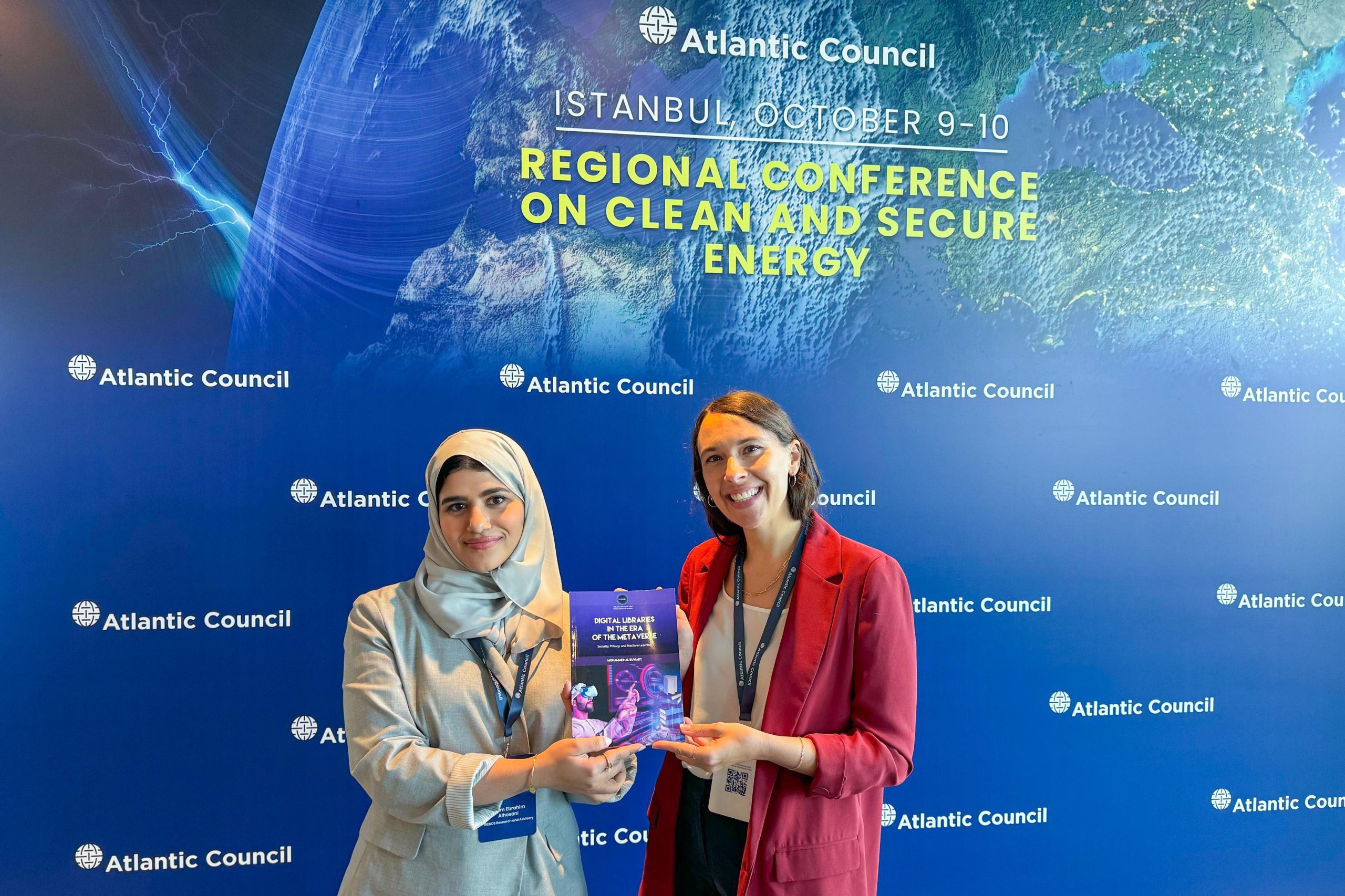TRENDS Research & Advisory’s Istanbul Office made a notable appearance at the Atlantic Council Regional Conference in Istanbul. The office’s team, led by Dr. Serhat Süha Çubukçuoğlu and researcher Reem Al-Hosani, participated in active panel discussions that addressed key climate challenges facing the Middle East and explored avenues for regional cooperation to tackle them.
The TRENDS Istanbul team made valuable contributions to these discussions, drawing from a vast database of studies and research conducted by the center on climate change and its effects on the region.

The team emphasized the importance of transitioning to a sustainable green economy, adopting environmentally friendly technologies, and diversifying energy sources, with a focus on enhancing regional cooperation in renewable energy.
Dr. Çubukçuoğlu stated that the participation in this global event provided an opportunity to present scientific research insights and exchange expertise and knowledge with think tanks and international organizations. The event also helped in contributing to the development of effective climate policies at the regional level.

He noted that the TRENDS team shared its vision for the future, offering several recommendations that contribute to a comprehensive action plan to achieve carbon neutrality in the region by 2050, along with practical recommendations to strengthen regional cooperation in renewable energy.
He pointed out that the TRENDS team presented detailed recommendations aimed at achieving carbon neutrality and enhancing regional cooperation in renewable energy. This includes the exchange of expertise and technology, and facilitating investments in joint projects.

The team also presented a forward-looking vision for developing a thriving green economy in the Middle East, based on sustainability and innovation.
Dr. Çubukçuoğlu highlighted that TRENDS’ participation in this event aims to strengthen the center’s position as a key reference in climate change research and studies in the region. It also seeks to build strategic partnerships with international and regional institutions, while emphasizing the importance of regional cooperation in facing climate challenges and building a sustainable future for next generations.



